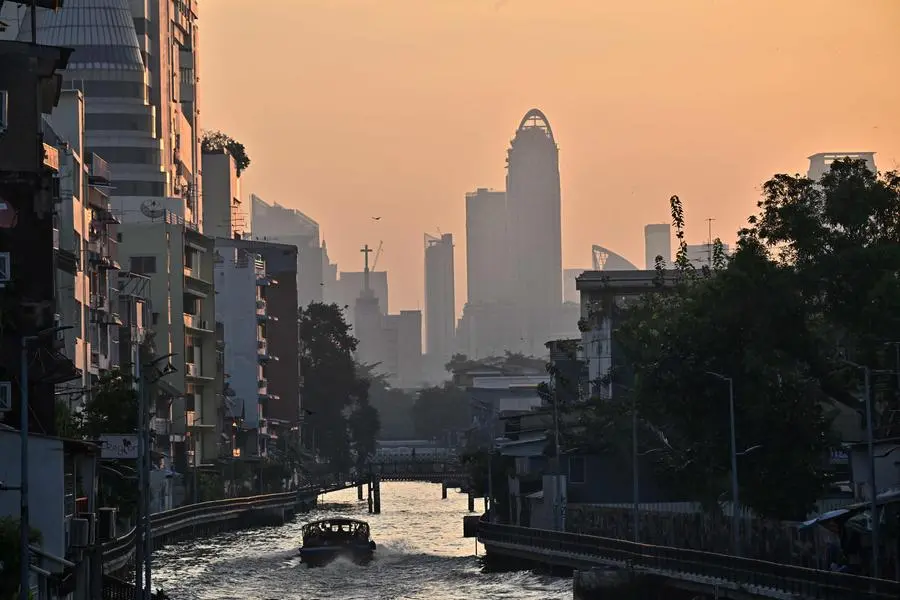PHOTO
Thailand must do more to tackle air pollution, a government agency has warned, saying more than 10 million people required treatment for pollution-related health problems in 2023.
The kingdom's cities often rank among the worst in the world for PM 2.5 particles -- so tiny they can enter the bloodstream -- during the early months of the year thanks to farmers burning stubble and exhaust fumes.
The National Economic and Social Development Council (NESDC) said that "prioritisation should be placed on... the impact of PM2.5 on public health".
"According to the Health Data Centre system of the Ministry of Health, in 2023 the number of patients with diseases related to air pollution is 10.5 million," the NESDC said in a regular update issued on Monday.
The NESDC advises Prime Minister Srettha Thavisin on economic and social development issues facing the kingdom, and makes recommendations.
Data from the health ministry show that since the start of 2024, some 1.6 million people have needed treatment for problems linked to air pollution.
The figures include people with conditions such as chronic bronchitis, lung cancer, asthma, and heart diseases.
Last month, Bangkok city employees were told to work from home for two days as a layer of noxious haze blanketed the Thai capital.
Air quality in Thailand regularly plummets in the early months of the year as smoke from farmers burning stubble in the fields adds to industrial emissions and vehicle exhaust fumes.
Srettha has pledged to improve air quality, and his cabinet endorsed a Clean Air Act in January.
The news comes as Hanoi, capital of neighbouring Vietnam, tops the world's most polluted cities, registering on Tuesday PM 2.5 levels that were 24 times the World Health Organization's annual guideline.





















